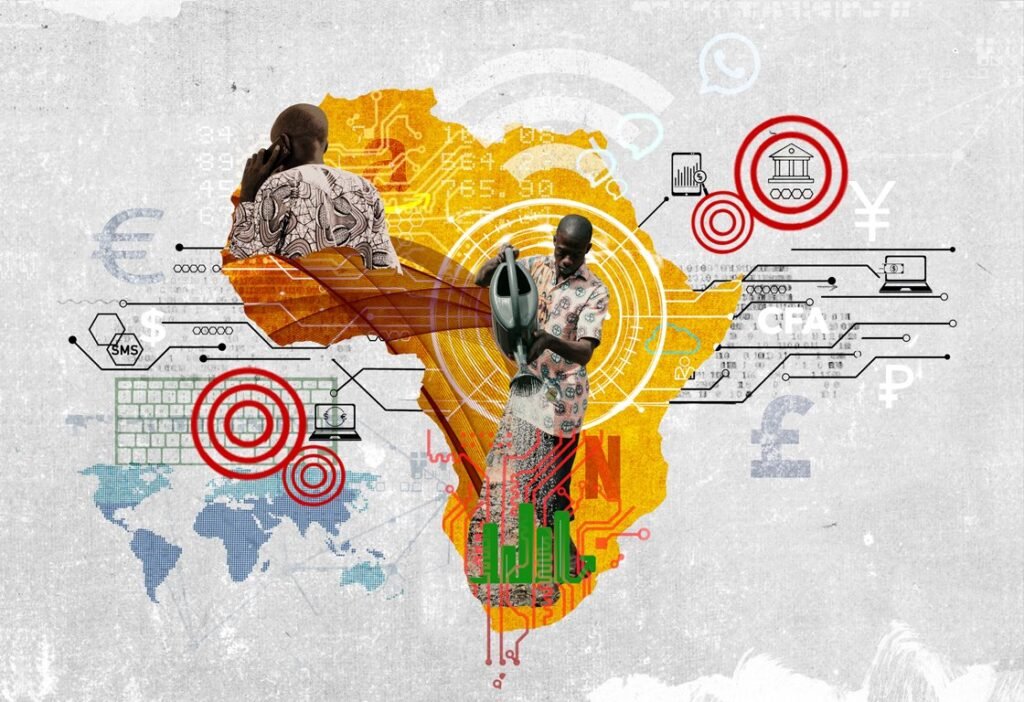In a lively conversation with Olayinka Olamilehin, the Founder & CEO of Virety, it became abundantly clear: the intersection of fintech and real estate in Africa isn’t just intriguing — it may well be pivotal. With the continent’s property market estimated to hit USD 17.64 trillion in 2025, and projected to grow to about USD 22 trillion by 2029, the opportunity is enormous, according to Nairametrics.
Olamilehin argues that the missing link for unlocking that potential is trust, and fintech solutions are rapidly emerging to provide the transparency and accountability that have long been absent in many African real-estate transactions.
Table of Contents

From Manual Payments to Digital Assurance – Why Fintech Matters
One of the core problems across many African real-estate markets is the persistence of cash-and-manually-processed payments, especially when it comes to rentals. “Payments go straight into a host’s account once a booking is made,” Olamilehin explains, “and often there is no way to guarantee the host delivered the service, or that the property matches the listing.”
That’s where fintech is making inroads. Platforms (including Virety) are now tying up payment systems such that funds are held in escrow via digital payment infrastructure until the guest or tenant confirms service delivery. This mechanism shifts the power back toward the tenant, reducing the risk of non-performance, poor quality accommodation or just outright fraud.
What’s more: fintech isn’t just about payments. Olamilehin points to geospatial intelligence, virtual tours, and 360° immersive property views as necessary complements for a modern, trustworthy marketplace.
In short: if you’re investing in property in Lagos, Nairobi or Abidjan, you increasingly expect to click, view, verify and pay — all in one seamless flow. The technology is still nascent in many places, but the goals are set.
Scaling Up: Challenges and the Path Forward
Although the potential is vast, the journey isn’t without hurdles. From the interview, several structural issues stand out:
1. Trust and verification gaps
Many listing platforms still rely on edited photographs or incomplete data. Olamilehin says, “still images can be edited to suit the taste of a house-seeker … they do not reveal spatial or actual representation of the spaces.”
Without verified listings, the risk of misrepresentation remains high — and for many tenants and property investors, that risk translates into caution or outright avoidance.
2. Infrastructure and physical constraints
Poor access to reliable power, erratic internet connectivity and weak transport links still weigh on many rental and investment decisions. Olamilehin makes the point that although the digital housing market thrives on data and transparency, “infrastructure is the bedrock of a profitable real estate economy”.
Thus, tech platforms alone can’t fully compensate for unreliable utilities or inadequate underlying facilities — developers and governments have their work cut out.
3. Regulation, privacy and local nuance
Data protection laws, user-consent frameworks and regulatory supervision vary widely across African countries. For example, what works in Lagos may not map neatly to Johannesburg or Accra. Olamilehin mentions that at Virety, they “only collect data that is necessary … with user consent”, and partner with “government-licensed service providers”.
As the platforms scale cross-border, harmonisation of frameworks — or at least interoperable systems — will be vital.
4. Affordability and underserved segments
While large-scale, high-end developments are cropping up in many urban centres, the voice of the middle-class and lower-income renter/investor is often missing. Olamilehin points out the private sector “has been too much focus on high-profile real-estate development and little concern for serving the largest economic class of society.”
For fintech + real-estate models to truly democratise, they’ll need to address how everyday Nigerians (and Africans more broadly) access housing, verify listings, and transact affordably.

Outlook: Why Now is the Time for Fintech-Driven Real-Estate Innovation in Africa
Here’s why the stars seem to be aligning — and why platforms like Virety see a meaningful role for themselves.
Rapid urbanisation and population growth
Africa’s urban population is accelerating at a record pace, and cities are expanding faster than housing supply in many markets. Olamilehin remarks: “Millions of people still search for homes through guesswork, risking fraud, misinformation, and costly site visits.”
This gap between demand and safe, efficient supply opens up space for tech-led solutions that bring clarity, efficiency and scale.
Huge market size with untapped segments
The conventionally quoted USD 17.64 trillion figure (projected by 2025) for the continent’s real-estate value underscores the vastness of the opportunity.
Even capturing small slices via verified listings, rental flows, or smaller investment products could translate into sizable revenue and volume for fintech-enabled platforms.
Changing payment behaviours and financial inclusion
As digital payment ecosystems mature across Africa, users are becoming more comfortable transacting online — including for large, traditionally offline purchases such as rent, lease, or property. Olamilehin sees a future where digital payments and even crypto-linked options become more mainstream in the property context.
Platforms that integrate secure payment, escrow, transparent property data and virtual access will likely gain trust and currency.
Efficiency gains from data and analytics
With geospatial intelligence, virtual tours and better analytics around supply-demand, platforms can reduce search and logistics costs. Olamilehin notes: “The cost of searching is reduced to zero” when the platform provides immersive technology, convenience for users with limited mobility, and data for decision-making.
For property managers, investors and tenants, that’s a compelling value proposition.

Conclusion
In our exchange, it became clear: the marriage of fintech and real estate in Africa isn’t just speculative — it’s essential. For platforms like Virety, the goal is not merely to digitise property listings but to redesign the trust infrastructure: verifying spaces, holding payments, controlling host accountability, protecting consumer data, and ultimately bringing much-needed transparency to a sector long plagued by opacity.
For middle-class Africans looking to rent, live, invest — or simply move with greater confidence — this shift is more than convenient. It’s transformative.
That said, the path ahead will require close collaboration between tech platforms, regulators, developers and governments. Access to infrastructure, regulatory clarity, and inclusive finance must all improve. But if the current momentum holds, fintech-driven platforms are well-placed to unlock the full potential of Africa’s USD 17 trillion-plus real-estate treasure trove.
Watch this space. The bricks are being laid — not just in concrete and mortar, but in code, data and digital trust.
Join Our Social Media Channels:
WhatsApp: NaijaEyes
Facebook: NaijaEyes
Twitter: NaijaEyes
Instagram: NaijaEyes
TikTok: NaijaEyes




